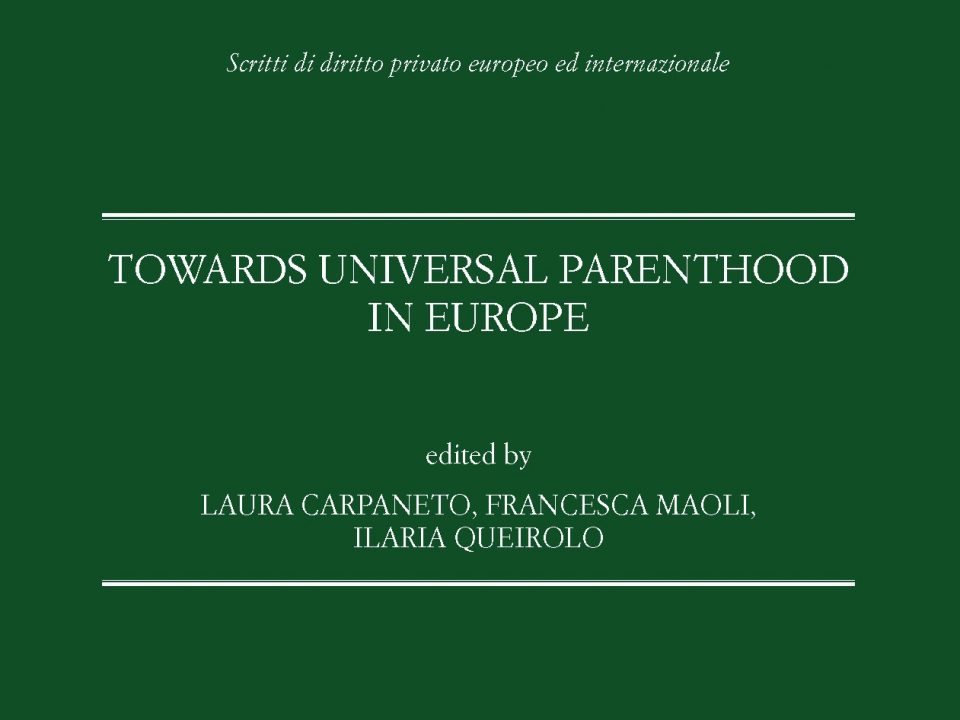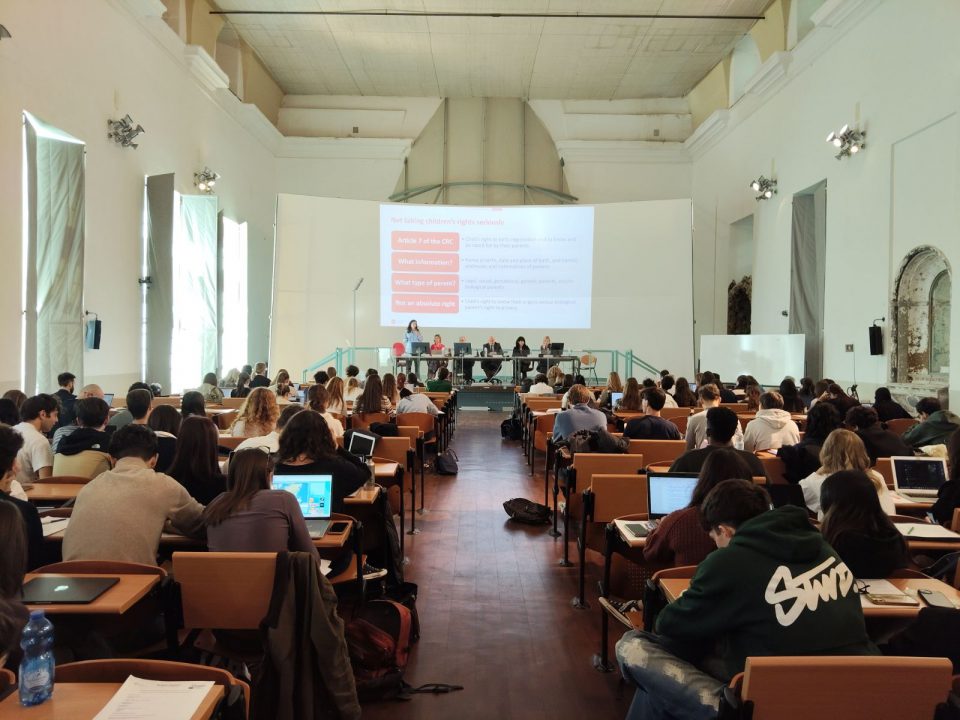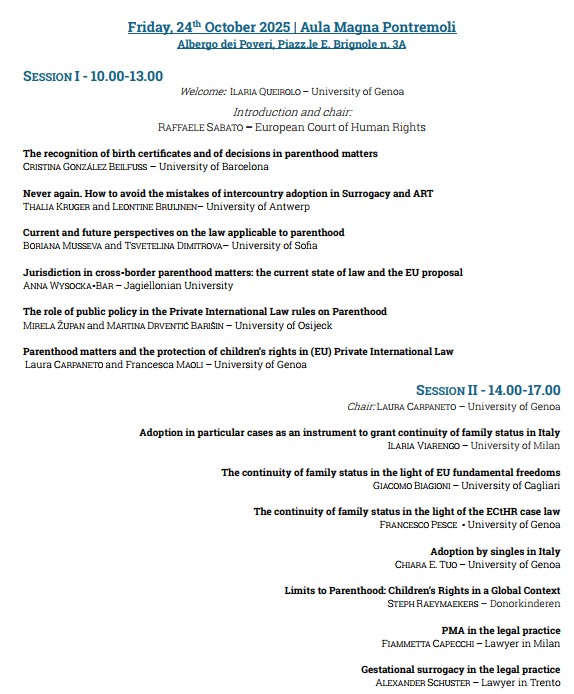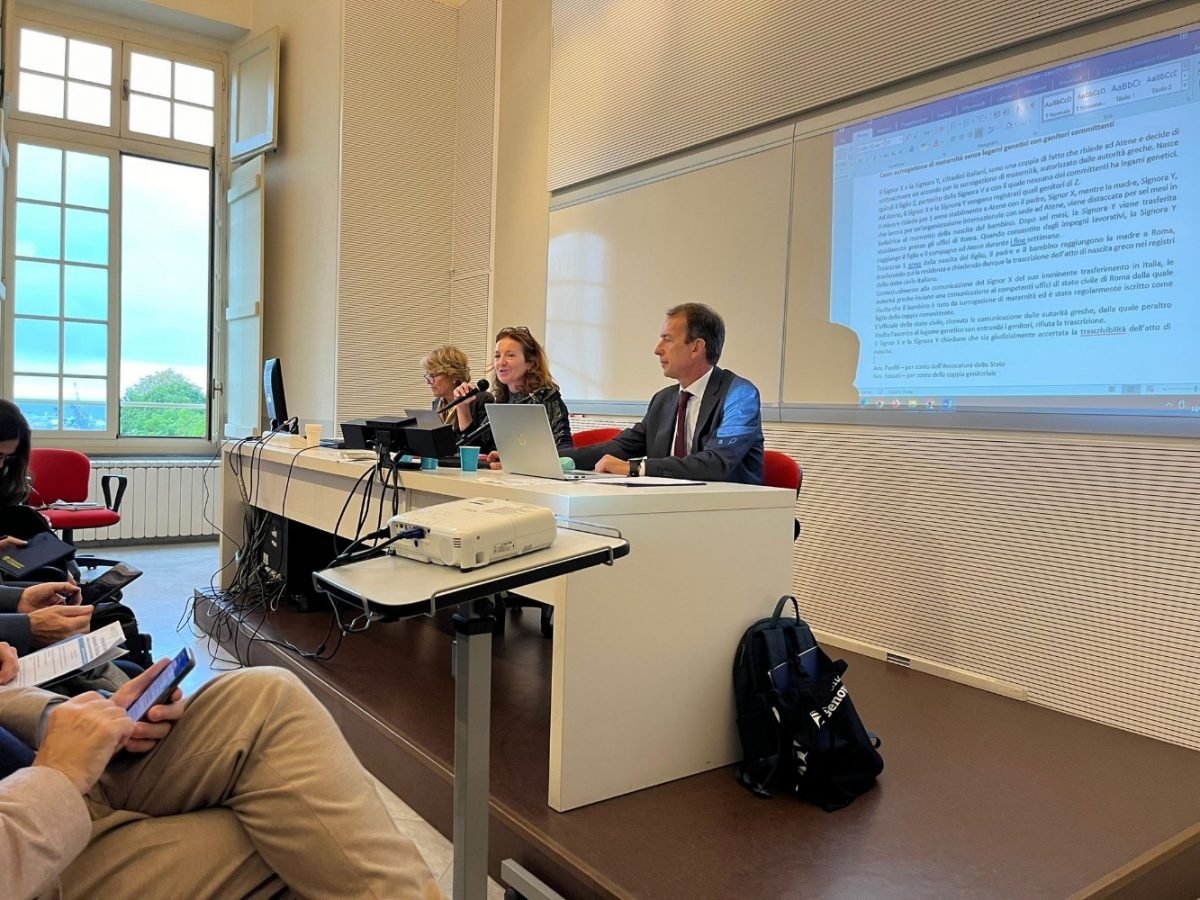
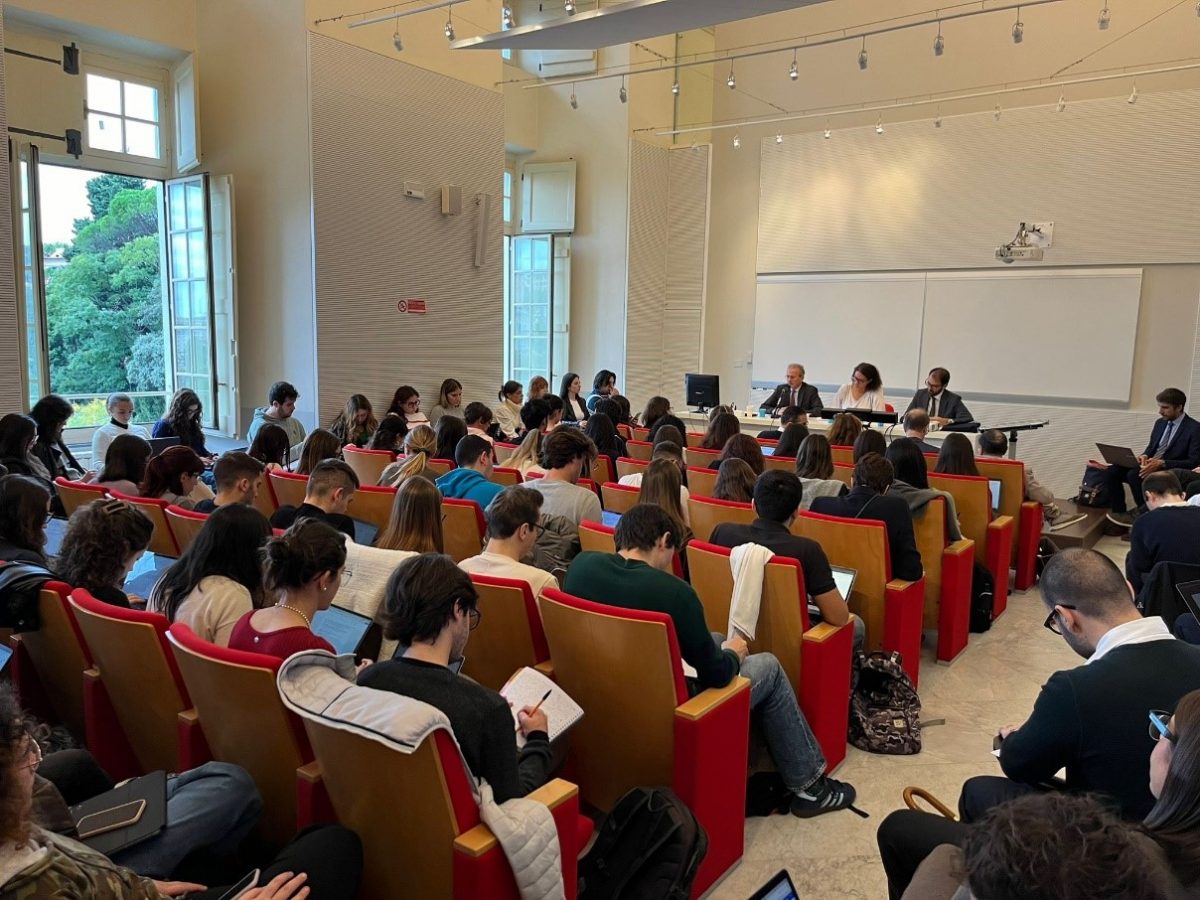
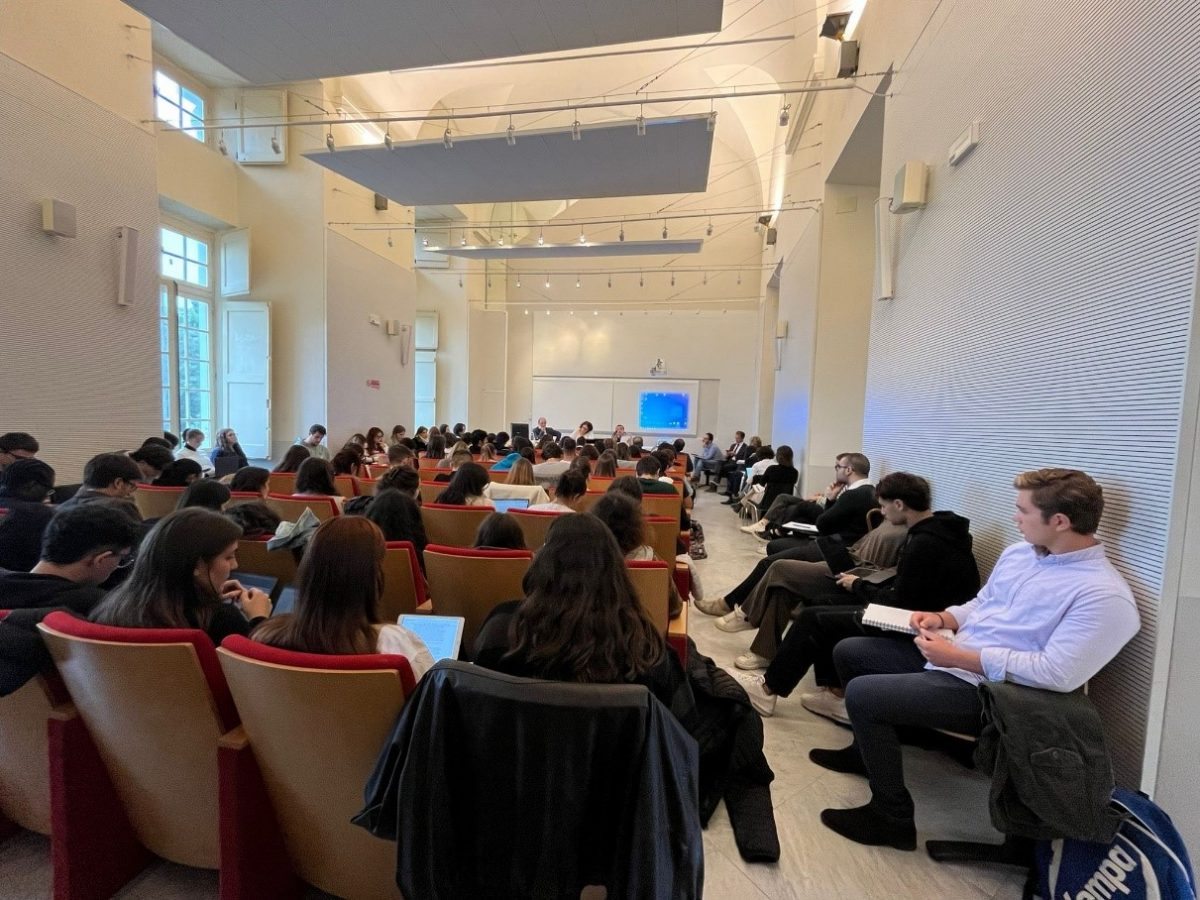
On 14th October 2024, a seminar has taken place at the University of Genoa (Italy) on “Surrogacy and recognition of family status: The dialectic between private autonomy and public order”.
The event, which registered a successful attendance of approximately 60 persons among lawyers, judges and law/political sciences students, offered the opportunity to discuss some important evolutions which are occurring in the Italian case law as concerns the recognition of parent-child relationships as a result of surrogacy.
In the first morning session, Dr. Adriano Patti (judge at the Italian Corte di Cassazione) delivered a presentation on the ruling of the Sezioni Unite No. 38162 of 30 December 2022, which is now the fundamental reference for the resolution of requests for recognition of a parent-child relationship constituited abroad through the use of surrogacy. The court held that the prohibition on surrogacy laid down in Article 12(6) of the Law 40/2004, defined as a ‘principle of international public order’ that protects fundamental values such as the dignity of the pregnant woman, cannot be overridden. The instrument identified by the case law to establish the parent-child relationship with respect to the intended parent is the ‘adoption in special cases’ foresaw by Italian Law, notwithstanding the fact that this instrument does not seem to protect the best interests of the child in full. Notwithstanding this, the solution is in line with the positions expressed by the European Court of Human Rights, which has recognized that States enjoy a margin of discretion on the modalities through which protect the de facto family life existing between a child and his or her intended parent.
Dr. Eugenio Tagliasacchi (judge at the Italian Consiglio di Stato), has focused on the possible areas of relevance of public law in terms of protection, highlighting how the situations under consideration do not fall within the jurisdiction of the administrative court. However, this does not mean that administrative law cannot have a (limited) margin of relevance in specific issues.
The session continued with a report by Dr Renzo Calvigioni, civil registrar and ANUSCA expert. After an introduction on the role and powers of the registrar, Dr Calvigioni focused on the issue of the transcription of acts from abroad (pursuant to Article 18 of Presidential Decree 396/2000), noting that surrogacy already has a detailed case-law framework in the Italian legal system. From the registrar’s perspective, the largest number of cases (95%) concern heterosexual couples who decide to resort to surrogacy abroad.
Finally, Alberto Figone, lawyer in Genoa, gave a lecture entitled ‘Surrogacy of maternity abroad, formation of birth certificates and requests for transcription in Italy. The recognition of international parenthood through adoption in special cases: problems and prospects’.
In the afternoon, the participants engaged in a practical session with the analysis and resolution of a case study. This made it possible to analyse a number of open issues concerning the recognition of the parent-child relationship established abroad through the use of surrogacy, which have not yet been fully addressed by the case law. The session has been moderated by professor Ilaria Viarengo (University of Milan) and led by Anna Maria Panfili and Cesare Fossati (lawyers in Genoa). A final debate involved not only the ‘panel of judges’ composed of Alberto Figone and Renzo Calvigioni, but also the rest of the audience, with the analysis of some possible solutions to the case.

